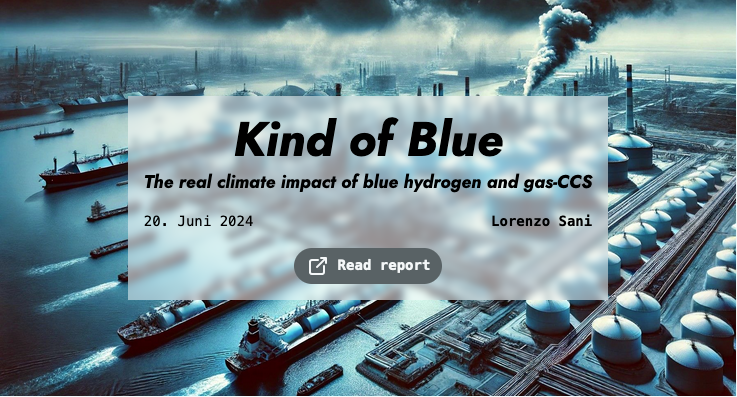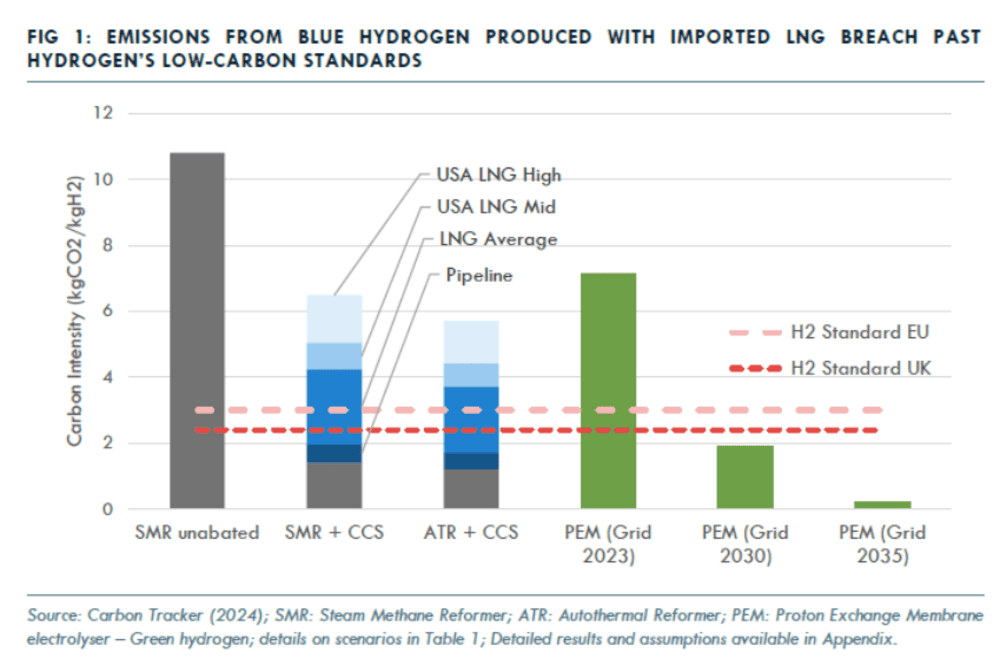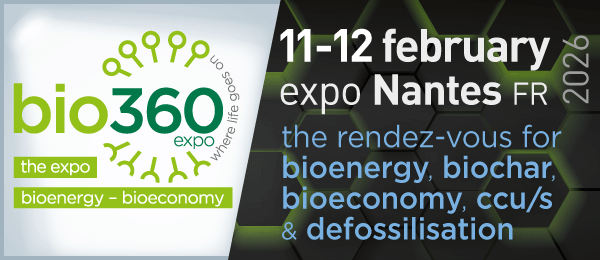Proponents of Carbon Capture, Utilisation and Storage (CCUS) technologies promise that CCUS-based hydrogen (i.e., blue hydrogen) and gas power plants with CCS (i.e., gas-CCS) can offer a low-carbon solution to decarbonise industrial and power sector.
This report evaluates the impact of upstream emissions to determine whether or not gas-based CCUS technologies could have a positive climate impact, assuming the technology would work as claimed by the CCUS industry.
This problem is particularly important for the UK and EU which following the 2022-23 energy crisis are increasingly reliant on imported LNG, particularly from the USA.
Download our report for free to find out more about how:
– Blue hydrogen and gas-CCS projects are not inherently low-carbon.
– New gas demand from CCUS will increase emissions.
– The carbon intensity of blue hydrogen is underestimated.
– Carbon savings from gas-CCS are overestimated.
– Environmental assessment frameworks are flawed.
– Gas-based CCUS projects can derail net zero strategies.
Our report features a comprehensive analysis of upstream emissions from various sources and countries. It includes two case studies that highlight the flawed assumptions in the environmental applications of two planned projects in the UK. Additionally, it offers a detailed set of policy recommendations for British and European policymakers.
Carbon Tracker Associate Analyst and report author Lorenzo Sani said: “Blue hydrogen and Gas-CCS projects should not be considered low-carbon unless, on top of achieving high carbon capture rates, they can guarantee to only utilise natural gas with low upstream emissions. Green hydrogen, produced from renewable electricity, remains the only truly low-emission pathway.”
Dr Andrew Boswell who is taking the UK Government to the High Court in July over the assessment of upstream emissions in recent planning approval of Gas-CCS Projects in Teesside said: “UK Ministers promoted and subsidised these new natural gas developments whilst ignoring the very severe climate impacts. With the Net Zero Teesside project, minister Claire Coutinho even agreed that upstream emissions had significant adverse climate impacts when approving it. This report shows that the decision was made using outdated Government assumptions that do not correctly forecast future emissions, and the minister was only seeing around half the real carbon footprint. An urgent review of CCUS and hydrogen policy is required.”

Author
Lorenzo Sani
Source
Carbon Tracker report, press release, 2024-06-20.
Supplier
Carbon Tracker Initiative Limited
Share
Renewable Carbon News – Daily Newsletter
Subscribe to our daily email newsletter – the world's leading newsletter on renewable materials and chemicals












